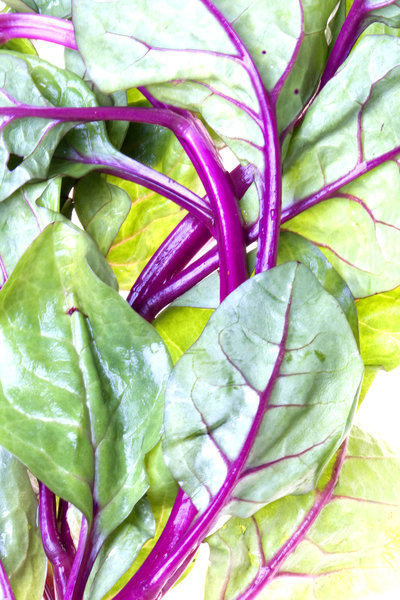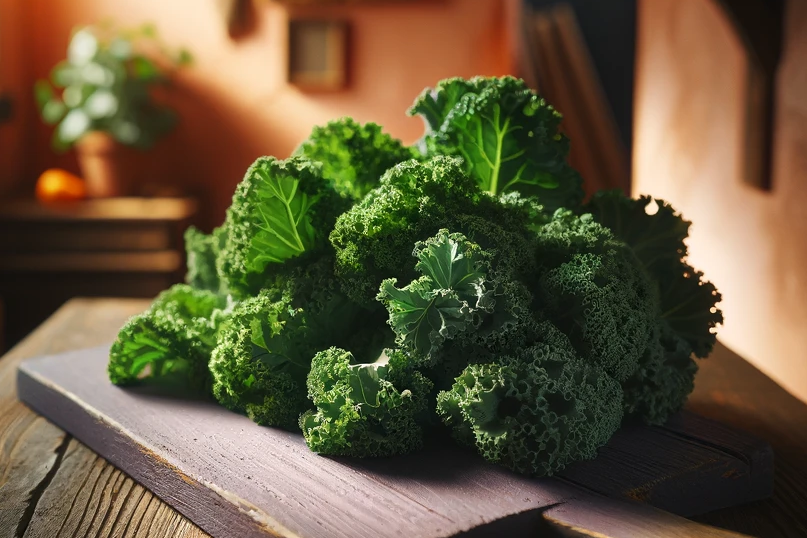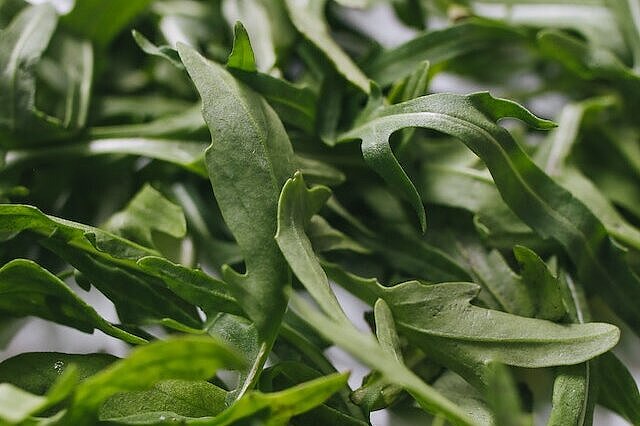Indian spinach

What is Indian spinach?
Indian spinach belongs to the creeping spinach family and probably originates from Africa or South East Asia. It requires a lot of warmth and thrives best in sunny and sheltered locations. It can grow up to three meters tall and produces purple-black berries in autumn. The leaves and stems are juicy and have a mild flavor. They contain lots of vitamins A, C, E, K, folic acid, iron, calcium, magnesium and fiber.
Indian spinach is mainly used in Indian cuisine, for example in the popular dish palak paneer, a spinach curry with cheese cubes. However, it can also be eaten raw as a salad or cooked as a side dish. It is very versatile and can also replace other leafy vegetables such as spinach or chard.
Benefits of Indian spinach for dogs
Indian spinach can also be a healthy ingredient for dogs if fed in moderation. It provides important vitamins, minerals and antioxidants that can boost the immune system, nourish the skin and coat, aid digestion and reduce inflammation. It can also help regulate blood sugar levels and lower cholesterol.
Indian spinach can be fed raw or cooked, with cooked spinach being easier to digest. It should always be washed well to remove any pesticides or contaminants. It can be given as a supplement to normal dog food or mixed with other vegetables.
Disadvantages of Indian spinach for dogs
Indian spinach also has some disadvantages for dogs that you should be aware of. Firstly, it contains oxalic acid, which in large quantities inhibits the absorption of calcium and can lead to kidney stones. Secondly, it can lead to flatulence or diarrhea in sensitive dogs, especially if it is fed raw.
Indian spinach should therefore only be fed in small quantities and not on a daily basis. It should also not be given to dogs with kidney problems or calcium deficiency. Care should also be taken to ensure that the dog does not get hold of the berries, as these can be poisonous.
Indian spinach is an interesting ingredient for dogs that can offer many health benefits. However, it should only be fed in moderation and not as a staple food. It should also always be washed and cooked well to minimize any potential risks. If you want to feed your dog Indian spinach, you should introduce him to the new vegetable slowly.
If you notice any signs of hypersensitivity or poisoning in your dog, you should see your vet immediately. We are not a substitute for a vet, but we try to be as accurate as possible. Every dog reacts differently and we recommend you get a second opinion or consult your vet if in doubt.
Stay healthy and take good care of your four-legged friend!😊
Similar to Indian spinach
Swiss chard is a plant that originally comes from the Mediterranean region. It has been used as a food and medicinal plant since ancient times. Swiss chard has large, dark green leaves and thick...
Kale belongs to the cruciferous family and is closely related to broccoli, cauliflower and kohlrabi. It has large, curly leaves that can be green or purple, depending on the variety. Kale is mainly...
Pak choi has several health benefits for dogs that you can take advantage of. For one, pak choi is rich in vitamins, minerals and antioxidants that can strengthen the immune system, protect cells...
Rocket, also known as arugula, is a plant from the cruciferous family, which also includes broccoli, cabbage and mustard. Rocket originates from the Mediterranean region and has been used as a food...



